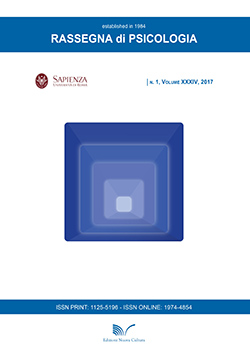Pronouns and verbs as gender markers in Italian parliamentary speeches: Intersecting gender, communication, and politics
DOI:
https://doi.org/10.13133/1974-4854/16667Keywords:
Parliamentary speeches and gender differences, agency, ingroup/outgroup differentiation, linguistic devices, quantitative and qualitative textual analysisAbstract
Our starting point is that there are gender differences in the use of language linked to masculine/feminine role identity, and not to alleged essentialist, intrinsic features. The research is a contribution to the understanding of links between linguistic behaviors and socio-psychological processes, as these relate to agency and ingroup/outgroup differentiation and to gender roles. We conducted our descriptive study on 441 parliamentary speeches delivered between 1976 and 2009 by four Italian politicians, differentiated by gender and political affiliation. We expected a higher degree of agency as well as higher ingroup/outgroup differentiation for male than for female politicians with a trend towards a lesser degree of gender differences in the later period (1994-2009) because of the feminine emancipatory processes in the Italian society and parliament. The indicators of high/low agency were: pronouns and verbs in the first person singular/plural, and conditional modal verbs. For the ingroup/outgroup differentiation, we used pronouns in the first and second person plural. We conducted a quantitative textual analysis and a qualitative contextual analysis. Our results confirm the hypothesis in part. We advanced some contextualist considerations to interpret the outcomes.Downloads
Published
2017-03-15
Issue
Section
Articles
License
Copyright (c) 2017 Gilda Sensales, Alessandra Areni, Luca Giuliano

This work is licensed under a Creative Commons Attribution 4.0 International License.

